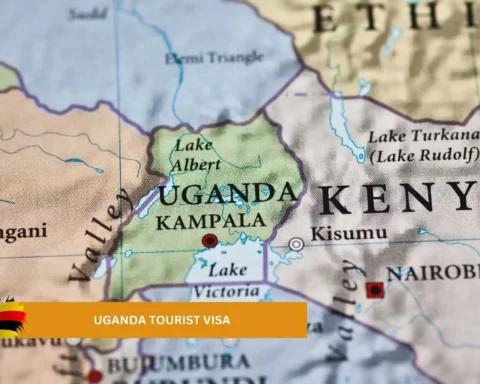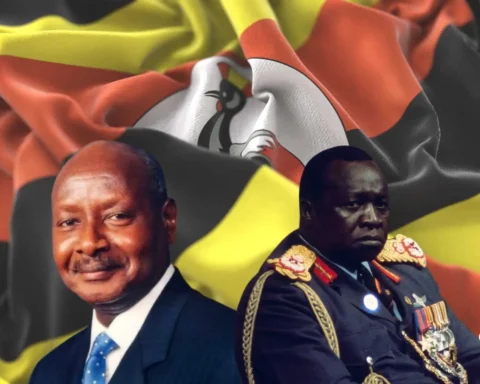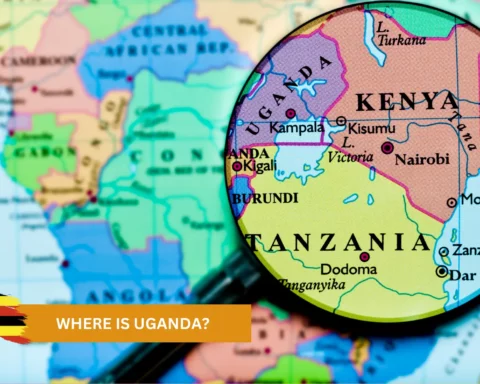At the heart of Uganda lies a colorful cultural and economic patchwork, the Indians in Uganda, a group whose presence dates to the colonial times and whose impact is still being felt in contemporary society. The history of Indians in Uganda can be described as their survival, business, and cultural integration and assimilation in times of turbulence, like the regime of Idi Amin, and their present-day life. This paper offers a profound examination of the origins, struggles, input, and legacy of Indians in Uganda with the help of the most up-to-date insights and sources.
Table of Contents
Historical Footprints of Indians in Uganda
The Indians in Uganda have their origins traced back to the late 19th and early 20th centuries under the domination of British rule in that region. In 1895, the Uganda Railway construction started to be monitored by the British Empire, and thousands of laborers were brought to work on the project, mainly from the Punjab region of British India.
The first wave was mainly comprised of Punjabis, and it formed the base of the Indian community in Uganda. Gujarati traders (both Hindu and Muslim), so-called passenger Indians, came to Uganda to trade as well as supply the colonies with the increasing commercial demands. Throughout the years, Indians thrived and dominated most of the influential sectors of the Ugandan economy, including trade, industry, and retail businesses.
Nevertheless, their financial prosperity caused jealousy among some parts of the native population and politicians. Upon the rise of Idi Amin in 1971, the tension that had been building up against the Indians climaxed in a 90-day expulsion order in 1972, in which tens of thousands of Indians and persons of Indian descent had to leave the country. This frightening experience changed the demographic picture of Uganda and scattered the indians around the globe, mostly in the United Kingdom, Canada, and the United States.
The post-Amin era marked a phase of reintegration. During the time of President Yoweri Museveni, thousands of Indians who had been forced out were invited back to Uganda, and many cases of reuniting families took place in the early 1990s. Their homecoming meant reconciliation and the initiation of rebuilding the lives and businesses of these settlers within a new socio-political atmosphere. Uganda today has a critical Indian population, and there are many whose families have been integrated into the social and economic lives of the country.

Contemporary Roles of Indians in Uganda
The modern roles of Indians in Uganda are various and influential. The community has a central role in commerce, industry, healthcare, education, and public services. Nevertheless, Ugandan Indians have demonstrated a phenomenal strength in restarting their businesses and playing a considerable role in the economy of Uganda.
Currently, many Indians in Uganda are entrepreneurs and business leaders who have contributed to the increase in tax revenues and cross-border trade in the East African region. Their skills in different fields have enhanced innovativeness and development in the marketplaces and industries in Uganda. In addition to economics, Indians have engaged themselves in cultural interactions, community building, and charity activities, which have promoted social connections across ethnic and cultural boundaries.
This vibrant flexibility is indicative of the entrepreneurship that has been defining the Indians in Uganda, a group that has survived the waves of history and become active players in the development of Uganda into the world economy.
Resilience and Enterprise: A Community’s Legacy
The story about Indians in Uganda is essentially the story about resilience and entrepreneurship. Although forcefully uprooted during the expulsion by Idi Amin, the Indian diaspora had settled elsewhere, and later in life, they returned and invested in their home country. They have not only contributed in terms of personal success stories, but the community has been able to support and collaborate, creating wide networks that have benefited not only Uganda but also the global diaspora.
Indian traders and entrepreneurs have been the backbone of major sectors of the economy, such as retail, manufacturing, and services. They were business-minded and ready to innovate, which contributed to the revival of the Ugandan economy after expulsion. This history of endurance also informs the greater story of diaspora communities who have been able to retain their cultural identities and, at the same time, contribute to their new countries.
Cultural Fusion and Identity
The Indians in Uganda have not only played an economic role but have also enriched a cultural fusion. Their immigration to Uganda and subsequent displacement to other places, such as the UK, resulted in hybridized identities that combine South Asian cultures with East African ones. The returning Ugandan Indians and their descendants are an embodiment of this fusion and have enriched the cultural life of Uganda in terms of food, religious practices, languages, and festivals.
The relationship between Indians and Ugandans has enabled both cultures to transfer their cultural knowledge to one another and overcome the gaps created during the colonial and post-colonial periods. This cultural hybridization is a confirmation of the long-term ties and mutual histories between the two peoples, which led to unity in diversity.
Exploring Origins: The Migration and Settlement
The history of the Indians in Uganda is strongly associated with the British colonial policies. Indian laborers, especially those in Punjab, were recruited by the British administration to construct the Uganda Railway, deliberately putting Indians in the middle of the Europeans and Africans in commerce and administration. This migration also generated economic opportunities to Indian traders who took advantage of the Ugandan natural resources, including tea, coffee, cotton, and further expanded their businesses to other parts of the region.
This historical background shows that Indians in Uganda were more than just migrant labourers. They were important influences in the region’s colonial economy and society. Their business success and intermediary status put them in a distinctive social position that affected Uganda’s racial and economic conditions during the colonial period.
Enduring Influence of Indians in Uganda
The long-lasting impact of Indians in Uganda can be traced in many aspects. Indian entrepreneurs have invested heavily in trade, industry, and infrastructure, which has led to the development of some of the essential services that include healthcare and education. Buganda Road in Kampala is a commercial hub that symbolizes Indian presence in Uganda, and it is a testament to their years of success as businesspeople.
The positive role of Indians in Uganda is seen in many aspects. Economically, Indians have made huge investments in trade, industry, and infrastructure, providing them with the necessary services such as healthcare and education. The Buganda Road in Kampala is a physical centre of the Indian trade and is evidence of their historical presence and their business success.
Conclusion
The Indians in Uganda play an important role in the history and present day of the country. Their experience as colonial workers and traders and their forced exile up to their tenacious return is a remarkable tale of survival, business, and cultural integration. Their financial contributions and social inclusion still remain highly instrumental in the development of Uganda, and the Indians in Uganda remain a historical as well as an important community.

FAQs
Why did so many Indians live in Uganda?
Many Indians made their homes in Uganda because of the British colonial policy that had attracted them to the country as labourers and traders to boost the economic growth of the country during the British Protectorate era.
Why did the first Indians come to Uganda?
The earliest Indians arrived in Kenya mostly as laborers brought to work on the Uganda Railway at the end of the 19th century and the beginning of the 20th century, and as traders and businessmen.
Why did Gujaratis go to Uganda?
Gujarati, among other Indians, had migrated to Uganda due to business and trading opportunities under the encouragement of the British rule and had been instrumental in expanding the trade and industry in Uganda.










[…] The autocrat's regime in Uganda resulted in a severe loss of life, including the expulsion of Ugandan Asians, highlighting ethnic tensions and the impact of political decisions on vulnerable […]